
Civic Innovator: Tania Mattos, Bolivia/United States
Click here to view a video interview with Tania Mattos. Tania Mattos was watching Telemundo with her mother one day in May 2010 when she witnessed something that changed her life. On screen, four young undocumented immigrants dressed in graduation caps and gowns were being arrested during a sit-in at Arizona Republican Senator John McCain’s … Read more
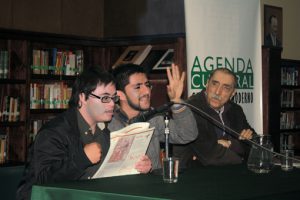
Arts Innovator: Mauricio Díaz Calderón, Colombia
Mauricio Díaz, a 26-year-old Colombian journalist currently studying for a Masters in cultural studies at the Universidad de los Andes, has transformed his passion for literature into a means of achieving social change. Fundación Fahrenheit 451, the brainchild of Díaz and a group of college students with a common passion for literature, started in 2007 … Read more
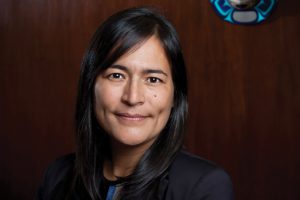
Politics Innovator: Michèle Audette, Canada
Michèle Audette, president of the Native Women’s Association of Canada (NWAC), knows what it means to be invisible. Although she is a native Innu speaker, born in the Innu community of Mani Utenam in Québec, Audette was not granted Indigenous status when she was born because her mother had married a non-Native. At the time, … Read more
From the Think Tanks
Due Process of Law Foundation Executive and legislative interference in judicial processes is increasingly threatening the rule of law in the Americas. The Washington DC-based Fundación para el Debido Proceso (Due Process of Law Foundation—DPLF) examined the growing restriction of judicial independence throughout the region in the December 2012 issue of its publication, Aportes. Through … Read more
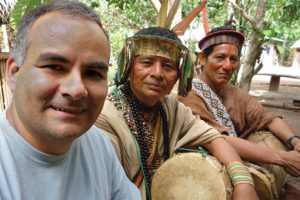
Indigenous Symphony
The Asháninka, a 25,000- to 45,000-person Indigenous tribe in the thick forests of the Peruvian and Brazilian Amazon, have for centuries resisted threats from Spanish colonists, rubber tappers, illegal loggers, and Shining Path guerrillas. Now they are getting a frendlier kind of recognition: as musicians. The Sinfonía Asháninka (Asháninka Symphony) is slowly building a broad … Read more
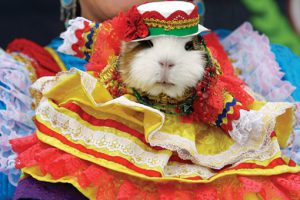
Good Dressers…and Tasty Too
Few animals are as highly revered in Peru as the cuy, or guinea pig, one of the most popular delicacies in the Andes. And every spring, Peruvians honor the furry rodent with the Cuy Festival—also known as “Festicuy.” Festicuy is celebrated throughout Peru, but Jesús, one of Cajamarca province’s 12 districts, has hosted its event … Read more
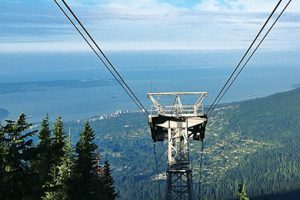
10 Things to Do: Vancouver, Canada
Located on Canada’s rugged West Coast, Vancouver is consistently ranked as one of the world’s most livable cities—thanks to its vibrant outdoors culture, low crime rate and efficient urban infrastructure. The one-time logging outpost is now a multicultural metropolis of 2.3 million, with a temperate climate that makes it hospitable year-round. Just remember to pack … Read more

A New Fashion Capital?
Jamaica may not have the fashion industry cachet of London, Milan, New York, and Paris, but Pulse Investments Ltd. hopes to change that. A 30-year-old Jamaican fashion, music and entertainment company, Pulse founded Caribbean Fashion Week (CFW) to boost global visibility for Caribbean fashion. On June 6, more than 50 top designers from 20 countries … Read more
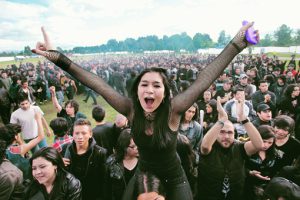
Rock al Parque
With one of the richest musical cultures in the Americas, Colombia has added rock to its repertoire. Devout fans of the music that inspired generations of American and British teenagers since the 1950s have been gathering every year in Bogotá’s Simón Bolívar Metropolitan Park for Rock al Parque (Rock in the Park), the region’s largest … Read more
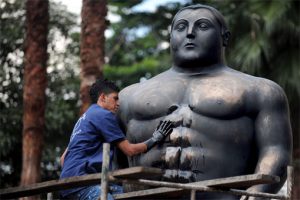
Guate-Mara: the Extortion Economy in Guatemala
Behind the walls of export-processing zones in Mixco and Villa Nueva on the outskirts of Guatemala City, apparel workers assemble, sew, label, inspect, and iron millions of garments, packing them in cartons bound for the United States. For more than 30 years, Guatemala’s maquilas have been a hub of the global economy; but lately, these … Read more
Ask the Experts: Going Global
Cynthia J. Arnson answers: Political and economic integration schemes have long been a staple of Latin American foreign policy. But changes in the regional and global economy since the early 2000s have created new incentives for the reform of global governance mechanisms to reflect the new constellations of political and economic power. South American countries … Read more
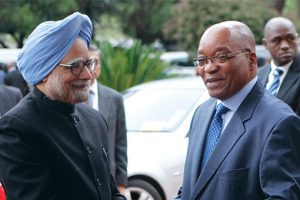
What is IBSA Anyway?
In June 2003, Brazil’s then-President Luiz Inácio Lula da Silva found himself on the sidelines of a G8 summit in France, along with his counterparts from India and South Africa. They had been invited to the summit as observers, but the invitation served mostly to underscore a common frustration. “What is the use of being … Read more
The Next Big Thing? The Trans-Pacific Partnership & Latin America
The hottest topic in world trade these days is the Trans-Pacific Partnership (TPP). Hailed as a state-of-the-art free trade agreement (FTA), it will unite 11 countries—Australia, Brunei, Canada, Chile, Malaysia, Mexico, New Zealand, Peru, Singapore, the United States, and Vietnam—with a combined GDP of almost $21 trillion (about 30 percent of world GDP) and $4.4 … Read more

The NRA’s Hemispheric Reach
With gun violence once again at the top of the U.S. political agenda, the rest of the world waits anxiously for signs that Washington can move beyond the polarizing national debate over gun control and develop even modest improvements to firearms legislation. The issue is particularly sensitive in the Americas, where the trafficking of American … Read more

Despite its pretentions, the alliance was held together primarily by oil largess that can’t last.
ALBA was created by the late Venezuelan President Hugo Chávez in 2004 to serve as a grand and high-profile rejection of the United States–proposed Free Trade Area of the Americas (FTAA) and, more generally, of international capitalism. Instead of basing trade on supply and demand, ALBA countries would use social consciousness and human rights as … Read more


